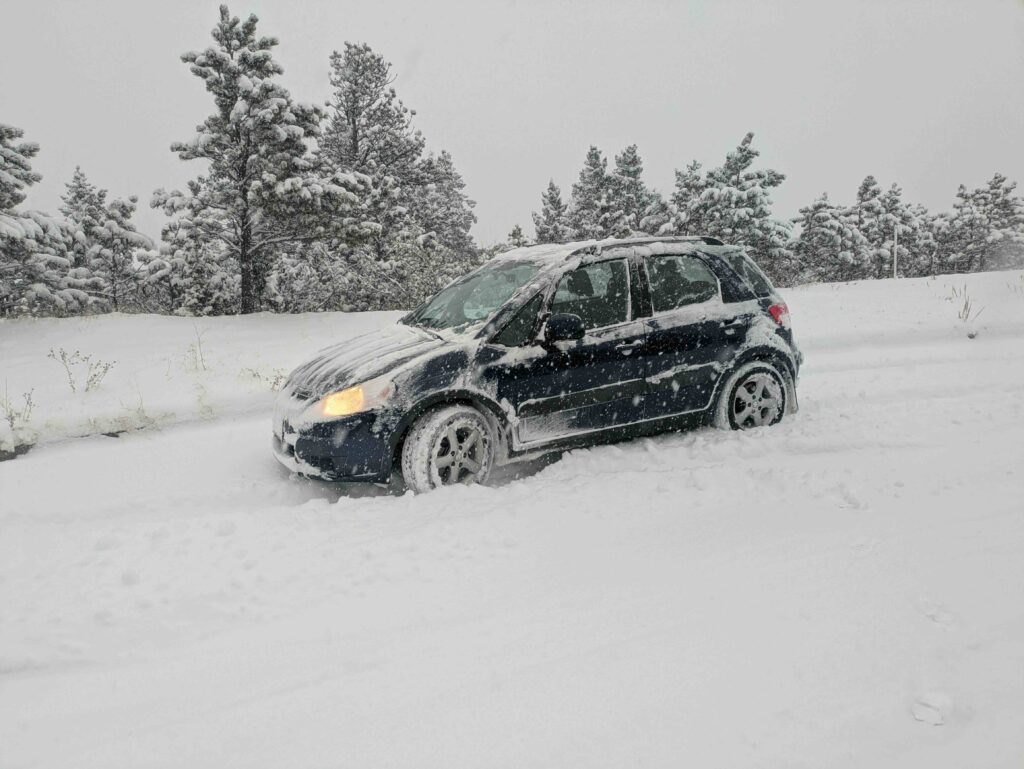
In 2022 I found myself in need of a vehicle. Someone in my household got in an accident and totaled their car, and needed to get to work. Added on, I had another household member about to get a driver’s license. Also added on, the used car market was still difficult / expensive, coming out of the pandemic (at one point around this time my 4 year old 4Runner was worth more than I paid for it new).
So, after trolling Craigs List and Facebook Marketplace, I eventually found a 2008 Suzuki SX4 with 169k miles for $3000. It was in kind of rough shape cosmetically, but I decided to buy it given all the other constraints.
We named it “Burt, the Bitchin Suzuki.” Since my offspring were driving it, I invested (quite) a bit to make it safe – new tires, shocks, and struts, plus some normal maintenance items (fluids, battery, etc).
Burt was a great little car. Put it in AWD mode and it could shred snow covered roads without a thought. It was easy to park, and was generally reliable. We had to make a few repairs after the initial investment but overall it ran just fine.
With Burt’s primary driver away at college, I planned to sell it this fall after she returned to school. Unfortunately, a water pump failure accelerated that decision – the shop quoted $1500 to fix it, and it seemed unlikely I’d get that back.
All of this got me thinking about the economics of cars. At one time the conventional wisdom was that the cheapest way to drive is to “buy an old car and drive it into the ground.” That CAN be true, but it isn’t necessarily true. We owned Burt for about 40 months, and the costs break down something like:
Purchase price – sale price: $2400
Insurance: $4000 (estimate, but I think it was usually around $100 a month)
Fuel: $2000 (also an estimate, based on miles driven and assuming $3 a gallon)
Maintenance / Repairs: $5000 – mostly stuff you expect (brakes, battery, shocks/struts, fluids, tires)
Registration / Fees: $210 (this is a big area of savings in Colorado if you have an older car – newer cars effectively have a property tax so registration can cost hundreds per year, or more).
So, it cost about $340 a month to own, or about $11-$12 a day. I think that was worth it so my daughter could self propel to and from school, sports events, social activities, shopping, etc without having to coordinate sharing cars with me or my wife, but it isn’t that much cheaper per month than my wife’s 2019 CR-V has been (using an assumed sale price).
Per mile, it’s a bit of an uglier story – roughly $1, which is quite a bit over the current tax deduction for mileage ($0.70). But, the convenience of having it available trumps per mile cost in my head.
So what is the conclusion? Cheap cars might not really be all that cheap, but I can only speculate how these numbers might have worked out if I had bought something different (gas and insurance would likely have been similar, but depreciation and maintenance may have been very different stories). In the end, it was a cool little car with a lot of character, I only wish the water pump had lasted another couple months…